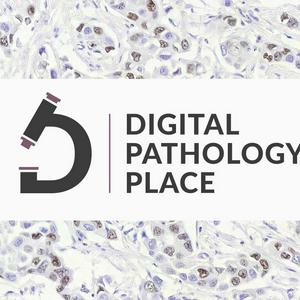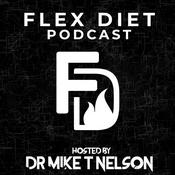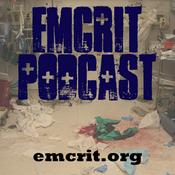185 episodes
- Send a text
Is AI in pathology actually improving diagnosis — or just adding complexity?
In DigiPath Digest #37, we reviewed four recent publications covering AI-based biomarker quantification in glioblastoma, real-world digital workflow integration in prostate cancer, multimodal AI combining histopathology and genomics, and patient perspectives on AI in cancer diagnostics.
This episode connects technical performance with something equally important: trust.
Episode Highlights
[00:02] Community & updates
Digital Pathology 101 free PDF, upcoming patient-focused book, and global attendance.
[04:07] AI-based image analysis in glioblastoma
AI showed strong consistency with pathologists when quantifying Ki-67, P53, and PHH3.
Significant biological correlations (Ki-67 ↔ PHH3, PHH3 ↔ P53) were detected by AI — not by manual assessment.
Takeaway: computational quantification improves precision.
[09:28] Real-world digital workflow + AI in prostate cancer (France)
AI-pathologist concordance:
• 93.2% (high probability cancer detection)
• 99.0% (low probability slides)
Gleason concordance: 76.6%
10% failure rate due to pre-analytical artifacts.
Takeaway: infrastructure and sample quality still matter.
[15:58] Multimodal AI (MARBIX framework)
Combines whole slide images + immunogenomic data in a shared latent space using binary “monograms.”
Performance in lung cancer: 85–89% vs 69–76% unimodal models.
Takeaway: integrated data improves case retrieval and similarity reasoning.
[22:13] AI-powered paper summary subscription introduced
Structured summaries for busy professionals who want more than abstracts.
[26:17] Patient roundtable on AI in pathology (Belgium)
Patients expect:
• Better accuracy
• Faster turnaround
• Stronger collaboration
Trust is high when:
• Algorithms use diverse datasets
• Pathologists retain final responsibility
Clinical validity mattered more than full algorithm transparency.
Privacy concerns focused more on insurer misuse than cloud transfer.
Key Takeaways
AI improves biomarker precision in glioblastoma.
Digital pathology implementation works — but pre-analytics can limit AI performance.
Multimodal AI represents the next meaningful step in precision diagnostics.
Patients are not afraid of AI — they want validation, oversight, and governance.
Human–AI collaboration remains central.
If you’re working in digital pathology, computational pathology, or precision oncology, this episode connects evidence, implementation, and patient perspective.
Support the show
Get the "Digital Pathology 101" FREE E-book and join us! - Send a text
What actually needs to be in place before digital pathology can replace the microscope?
In this episode of DigiPath Digest, I walk through the 2026 Polish Society of Pathologists guidelines and translate them into practical steps for real pathology labs. This isn’t theory. It’s about hardware fidelity, data integrity, validation, and AI integration — and what each of these actually requires in daily workflow.
We talk about scanner resolution standards (≤0.26 μm per pixel), 4K monitor calibration, visually lossless compression (20:1), scalable storage, pathologist-driven validation, and what “non-inferiority” truly means.
Digital pathology is not just a change of medium. It’s an operational shift.
Episode Highlights
[00:02] Community & growth
1,600+ new newsletter subscribers, 10,000+ Facebook members, and free Digital Pathology 101 book access.
[07:20] The 4 pillars of adoption
Hardware fidelity · Data integrity · Clinical validation · Future integration.
[08:30] Hardware requirements
40x equivalent scanning (≤0.26 μm/px), 4K monitors, >300 cd/m² luminance, 10-bit color depth.
[12:00] Workflow & throughput
200–300 slides/day per scanner, automated focus control, urgent case prioritization.
[17:25] Storage & archiving
~1 GB per slide. Active archive (6–24 months). Long-term retention (10–20 years). GDPR compliance & TLS encryption.
[23:09] Validation philosophy
Pathologist-centered validation.
Two phases:
• Familiarization (~20 retrospective cases)
• Dual review with discrepancy tracking
Goal: digital must be non-inferior to glass.
[29:03] AI in digital pathology
AI supports quantification (Ki-67, HER2, ER/PR, PD-L1), tumor detection, and future multimodal predictions — but pathologists remain central.
[33:26] Intraoperative telepathology
<5-minute scan-to-view time.
Minimum 100 Mbps upload.
Redundancy and safety protocols required.
[34:50] Can digital cameras replace scanners?
Hybrid workflows exist. Regulatory compliance still applies.
[38:19] Adoption checklist summary
Certified scanners (CE-IVD/FDA), calibrated monitors, scalable storage, phased validation, and documented QC.
Key Takeaways
Digital pathology adoption is a structured process — not just buying a scanner.
Validation is individualized and tissue-specific.
Infrastructure and quality control are as important as image quality.
AI enhances reproducibility and quantification but does not replace pathologists.
Regulatory compliance and data governance are non-negotiable.
Support the show
Get the "Digital Pathology 101" FREE E-book and join us! - Send a text
This session is a practical walkthrough of where digital pathology and AI truly stand in early 2026—based on five recent PubMed papers and real-world implementation experience.
In this episode, I review new clinical adoption guidelines, AI applications in liver cancer imaging and pathology, AI-ready metadata for whole slide images, non-destructive tissue quality control from H&E slides, and machine learning–assisted IHC scoring in precision oncology.
This conversation is not about hype. It’s about standards, validation, data integrity, and clinical translation—the factors that decide whether AI tools stay in research or reach patient care.
Episode Highlights
01:21 – Practical digital pathology adoption guidelines (Polish Society of Pathologists)
08:05 – AI in liver cancer imaging & pathology, and why framework alignment matters
18:10 – AI-generated tissue maps as metadata for WSI archives
23:01 – PathQC: predicting RNA integrity and autolysis from H&E slides
32:14 – ML-assisted IHC scoring in genitourinary cancers
29:42 – Digital Pathology 101 book + community updates
Key Takeaways
Digital pathology adoption still requires clear standards and validation workflows
AI performs best when aligned with existing diagnostic frameworks (e.g., LI-RADS)
Metadata extraction is a low-effort, high-impact AI use case
Slide-based quality control can support biobanking and biomarker research
Automated IHC scoring improves consistency—but adoption remains uneven globally
Resources Mentioned
Digital Pathology 101 (free PDF & audiobook)
Publication Links: a. https://pubmed.ncbi.nlm.nih.gov/41618426/ b. https://pubmed.ncbi.nlm.nih.gov/41616271/ c. https://pubmed.ncbi.nlm.nih.gov/41610818/ d. https://pubmed.ncbi.nlm.nih.gov/41595938/ e. https://pubmed.ncbi.nlm.nih.gov/41590351/
Support the show
Get the "Digital Pathology 101" FREE E-book and join us! - Send a text
What happens when artificial intelligence moves beyond images and begins interpreting clinical notes, kidney biopsies, multimodal cancer data, and even healthcare costs?
In this episode, I open the year by exploring four recent studies that show how AI is expanding across the full spectrum of medical data. From Large Language Models (LLM) reading unstructured clinical text to computational pathology supporting rare kidney disease diagnosis, multimodal cancer prediction, and cost-effectiveness modeling in oncology, this session connects innovation with real-world clinical impact.
Across all discussions, one theme is clear: progress depends not just on performance, but on integration, validation, interpretability, and trust.
HIGHLIGHTS:
00:00–05:30 | Welcome & 2026 Outlook
New year reflections, global community check-in, and upcoming Digital Pathology Place initiatives.
05:30–16:00 | LLMs for Clinical Phenotyping
How GPT-4 and NLP automate phenotyping from free-text EHR notes in Crohn’s disease, reducing manual chart review while matching expert performance.
16:00–23:30 | AI Screening for Fabry Nephropathy
A computational pathology pipeline identifies foamy podocytes on renal biopsies and introduces a quantitative Zebra score to support nephropathologists.
23:30–29:30 | Is AI Cost-Effective in Oncology?
A Markov model evaluates AI-based response prediction in locally advanced rectal cancer, highlighting when AI delivers value—and when it does not.
29:30–38:30 | LLM-Guided Arbitration in Multimodal AI
A multi-expert deep learning framework uses large language models to resolve disagreement between AI models, improving transparency and robustness.
38:30–44:30 | Real-World AI & Cautionary Notes
Ambient clinical scribing in practice, AI hallucinated citations, and why guardrails remain essential.
KEY TAKEAWAYS
• LLMs can extract meaningful clinical phenotypes from narrative notes at scale
• AI can support rare disease diagnosis without replacing expert judgment
• Economic value matters as much as technical performance
• Explainability and arbitration are becoming critical in multimodal AI systems
• Human oversight remains central to responsible adoption
Resources & References
Digital Pathology Place: https://www.digitalpathologyplace.com
Digital Pathology 101 (free PDF, updates included)
Automating clinical phenotyping using natural language processing
Zebra bodies recognition by artificial intelligence (ZEBRA): a computational tool for Fabry nephropathy
Cost-effectiveness analysis of artificial intelligence (AI) for response prediction of neoadjuvant radio(chemo)therapy in locally advanced rectal cancer (LARC) in the Netherlands
A multi-expert deep learning framework with LLM-guided arbitration for multimodal histopathology prediction
Support the show
Get the "Digital Pathology 101" FREE E-book and join us! - Send a text
What really changed in digital pathology this year—and what still needs work?
As we close out 2025 and step into 2026, I wanted to pause, reflect, and share what I’ve seen shift from theory to real-world practice across labs, conferences, and clinical workflows.
I look back at the most meaningful developments in digital pathology and AI in 2025—from wider adoption of primary diagnosis on digital slides to more grounded, evidence-driven use of AI tools. We’ve moved past hype and pilots and started asking harder questions about validation, workflow integration, regulation, and trust.
I also share what I believe matters most as we move into 2026: building real-world evidence, upskilling pathologists, and focusing on tools that genuinely support patient care rather than distract from it.
This episode is for anyone navigating change in pathology and wondering where to invest their time, energy, and curiosity next.
Episode Highlights:
[00:00–02:10] Why 2025 marked a turning point for digital pathology adoption
[02:10–05:40] From pilot projects to clinical workflows: what actually changed
[05:40–08:30] How AI usage shifted toward triage, quantification, and decision support
[08:30–11:45] Why validation and real-world evidence became central topics
[11:45–14:20] The growing role of pathologists in AI governance and quality assurance
[14:20–17:10] Lessons from conferences, labs, and conversations worldwide
[17:10–20:00] What I expect to see more of in 2026—and what I hope we leave behind
Key Takeaways:
Digital pathology is no longer experimental—it’s becoming routine in more labs.
AI tools are shifting from novelty to practical clinical support.
Validation, regulation, and workflow fit matter more than algorithm performance alone.
Training and continuous learning are now essential career components for pathologists.
2026 will reward teams that test, measure, and iterate thoughtfully.
Resources Mentioned
Digital Pathology Place – education, podcasts, and community
2025 CONFERENCE insights and real-world lab experiences
Support the show
Get the "Digital Pathology 101" FREE E-book and join us!
More Health & Wellness podcasts
Trending Health & Wellness podcasts
About Digital Pathology Podcast
Aleksandra Zuraw from Digital Pathology Place discusses digital pathology from the basic concepts to the newest developments, including image analysis and artificial intelligence. She reviews scientific literature and together with her guests discusses the current industry and research digital pathology trends.
Podcast websiteListen to Digital Pathology Podcast, The Wellness Scoop and many other podcasts from around the world with the radio.net app

Get the free radio.net app
- Stations and podcasts to bookmark
- Stream via Wi-Fi or Bluetooth
- Supports Carplay & Android Auto
- Many other app features
Get the free radio.net app
- Stations and podcasts to bookmark
- Stream via Wi-Fi or Bluetooth
- Supports Carplay & Android Auto
- Many other app features


Digital Pathology Podcast
Scan code,
download the app,
start listening.
download the app,
start listening.



































